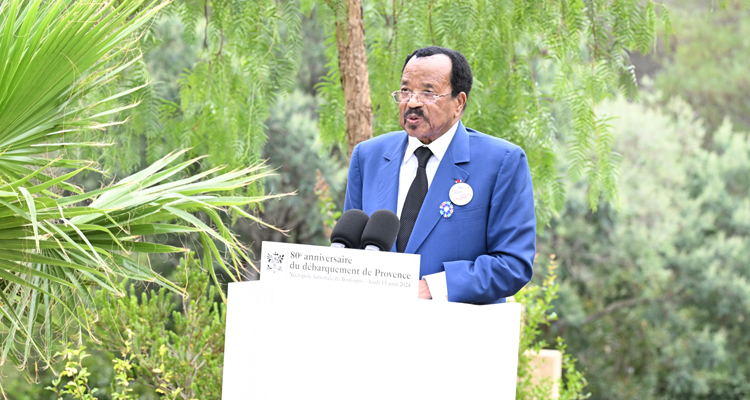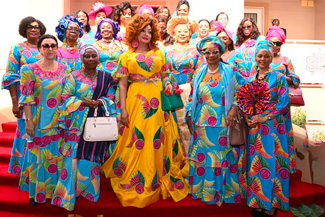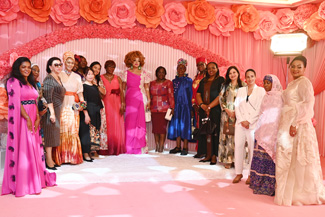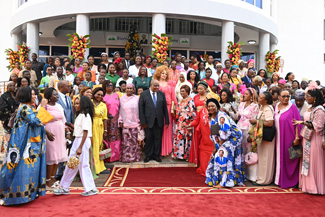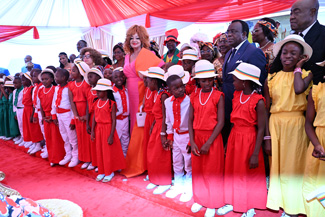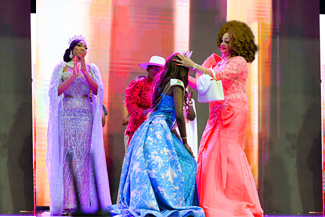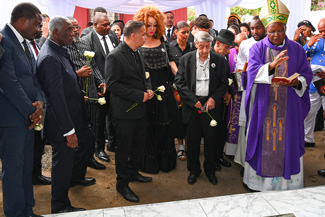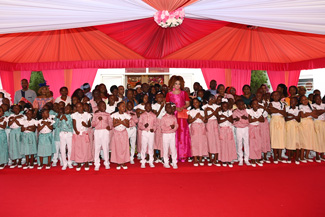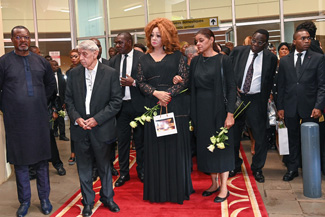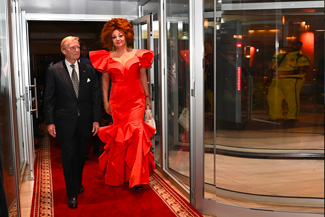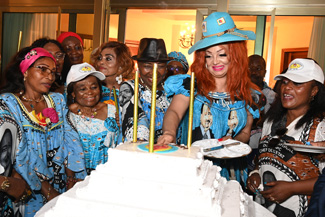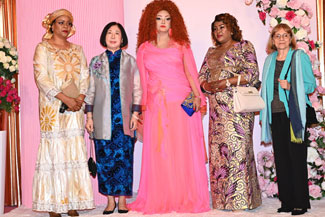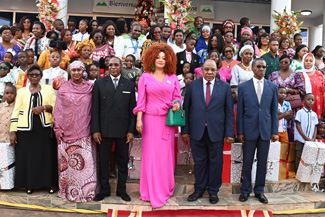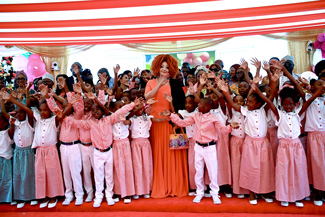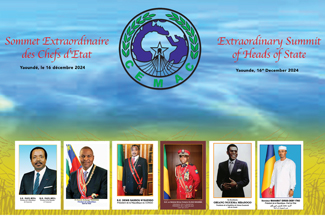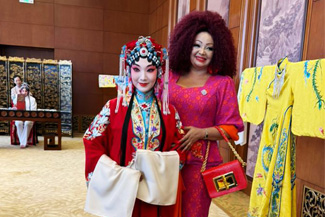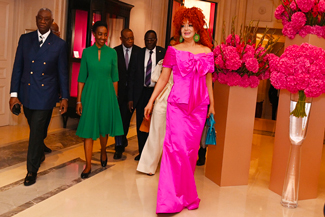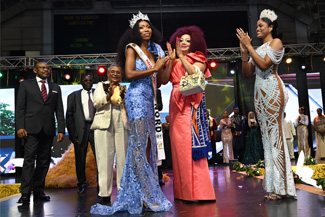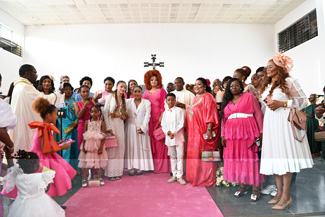The President of the French Republic,
Heads of State and Government,
Heads of Delegation,
Ladies and Gentlemen,
First of all, I would like to thank President Emmanuel MACRON for inviting me to take part in the 80th anniversary commemoration of the Provence Landing.
I would also like to thank him for the warm welcome accorded my delegation and me.
Furthermore, I would like to salute the presence of you all, who have come to this place, which was inaugurated in 1964 by General de Gaulle, the then President of the French Republic, in the presence of many combatants from France and Africa, on the occasion of the 20th anniversary of the Provence Landing.
The Boulouris National Necropolis is full of history, a place of remembrance, a place of pain and taking stock, that speaks to us and challenges us about the world’s future. Here in Saint-Raphaël, as in other parts of Provence, Normandy and elsewhere in Europe, many soldiers gave up their lives to fight against occupation and defend freedom, thus forming a formidable chain of solidarity. Today, we are still here to commemorate their valour, to remember a past war for freedom, and to pay a glowing tribute to these heroes.
Heads of State and Government,
Ladies and Gentlemen,
Under the leadership of General de Lattre de Tassigny, many of the thousands of men who fought bravely, hailed from all over the colonial empire of France. They came from, among others, sub-Saharan Africa. In other words, Africa made a significant contribution towards breaking the shackles of German occupation. The occupation was a harsh, liberticidal occupation, whose troops were under orders to fight to the last bullet.
The rallying of the Free France territories was key, and its contribution to the final victory was significant. Among others, it was in order to mobilize African troops that Colonel Leclerc was sent to Cameroon, then considered a potential base for to reconquer Europe’s. Cameroon, one of the very first countries to rally, did so immediately on 27 August 1940, prompting General de Gaulle to say, and I quote, “Cameroon has just made a wonderful decision and set a magnificent example”. Through the swiftness of this rallying, General de Gaulle was able to demonstrate France’s true combativeness to his allies. The troops under Colonel Leclerc's orders thus included a good many men from French Equatorial Africa and Cameroon.
Douala was the departure point for the expeditions that subsequently became the Leclerc Column, which accomplished numerous feats of arms. From 1942, they went through Tunisia, then Sicily in Italy and Corsica afterwards, not omitting Chad. Wherever the fighting took them, these valiant soldiers from West Africa, Equatorial Africa, Madagascar or the Indian Ocean distinguished themselves magnificently. On the flip side, they paid a very heavy price for victory. These exemplary combatants, in many cases, heirs of age-old warrior traditions, admirable for their courage, audacity and loyalty, and were the architects of the victory. Their blood is forever mixed with the blood of others, so that the colours of France and her allies would be crowned with glory for good. On this day of commemoration, we owe them enormous respect.
Heads of State and Government,
Ladies and Gentlemen,
There would have been no Allied victory without the sacred alliance of the volunteers, without the input of other peoples, without foreigners, without blacks and other riflemen. This war was fought together to defend the universal values and ideals of peace and justice. It was the expression of a shared vision of mankind and the world. In the name of this vision, we fought side by side. This vision was respectful of our differences, and of the infinite diversity of peoples, cultures, religions and civilizations. Such vision recognizes that each of us has an equal right to dignity. The exemplary solidarity that prevailed remains a precious lesson that we must perpetuate and pass on to future generations, to avoid the errors of the past.
Personally, I am convinced that international solidarity and greater consideration of the interests of other countries, particularly those of the South, would provide more peace in today's world. Such, as well, is the meaning of our presence here.
Excellencies, Ladies and Gentlemen,
As you all know, we are here in Provence to remember a war of the past, and to pay tribute to the heroes of our history. However, the war we thought was forever banished from our territories is once again knocking on Europe's door. It is now closer to us. Men are fighting again just a few hours away. This means that, international organizations and the system established in the wake of the two world wars, especially the Second World War, remain perfectible. Yes, the ghosts of the spirit of revenge; the flagrant violation of the sovereignty of States; the intolerable contempt for peoples are resurfacing from the past and being rammed down our throats daily. International law is interpreted in various ways; human rights are being manipulated; other wars are forgotten or denied; there is a never-ending desire to dominate, to exploit and to build a world that is solely to one's own advantage. These are just some of the shadows that looming over us today, and on which our presence here should bring to light.
This commemoration must also highlight our collective responsibility to preserve peace and freedom in the world.
We must address the issues and causes fuelling terrorism, injustice and mistrust in multilateralism, if we hope to foster harmony and make the world a safer place.
Almost everywhere, the big issue remains whether we should yield to the pessimism of the inevitability of war, or whether we can still build a promising future where war will forever be a thing of the past.
Regrettably, global geopolitics and geostrategy remain dominated by the arms race, the formation of blocs is resurfacing, the Cold War whose death knell was sounded by the fall of the Berlin Wall is back, new players such as private paramilitary companies are active here and there, and proxy wars are now being waged.
If we fold our arms, the world will once again be heading for one or more wars with immeasurable consequences.
Cameroon, for its part, has always opted for dialogue and concerted solutions, and has made the peaceful resolution of disputes the key to its efforts at preventing war and resolving conflicts.
All in all, I wish to hail the holding of this Commemoration, which affords an excellent opportunity to promote solidarity between nations in building peace and addressing together, the major issues of our time.
Thank you for your kind attention.
Boulouris-Saint-Raphael, 15 August 2024.
Download (PDF)
